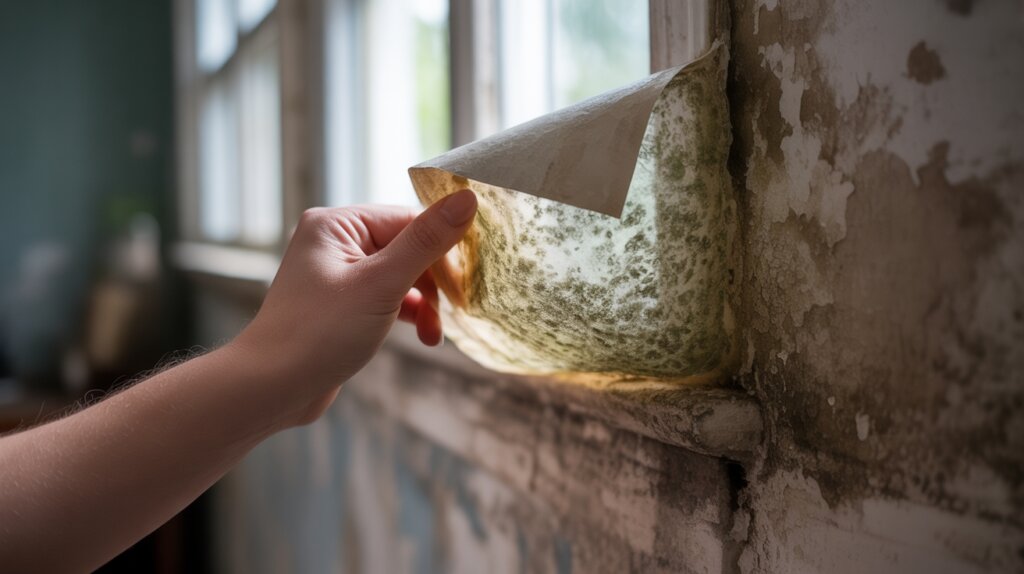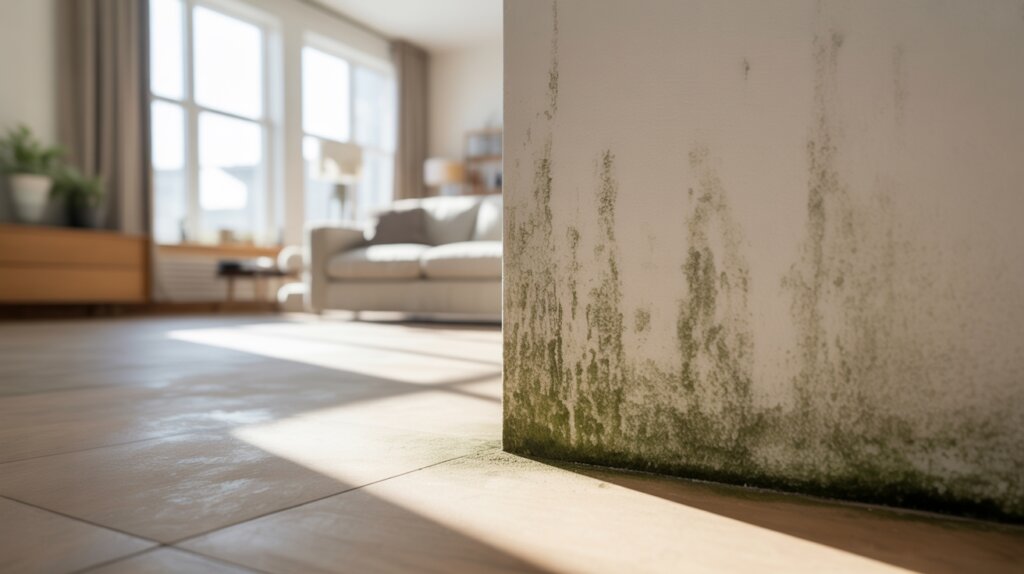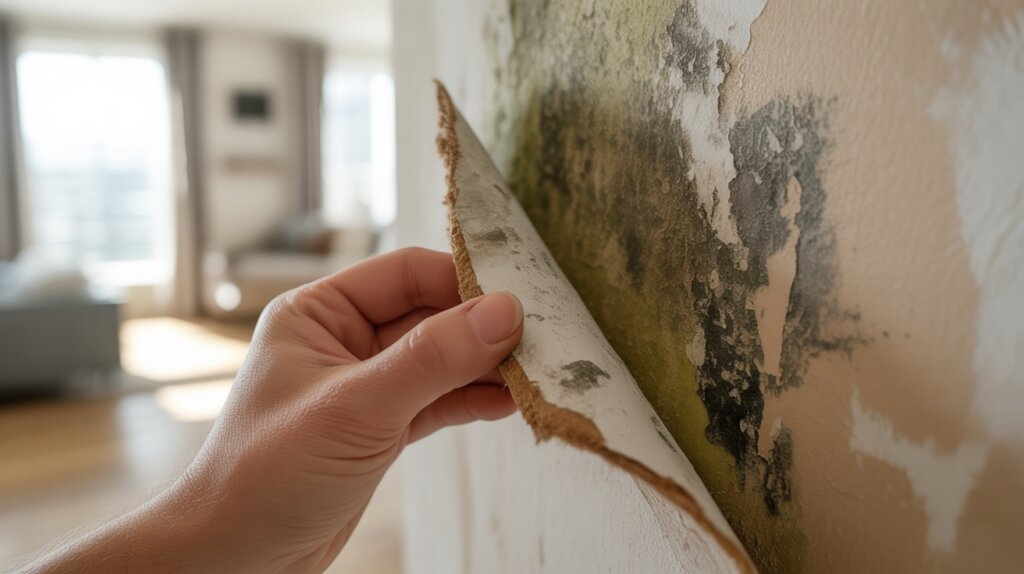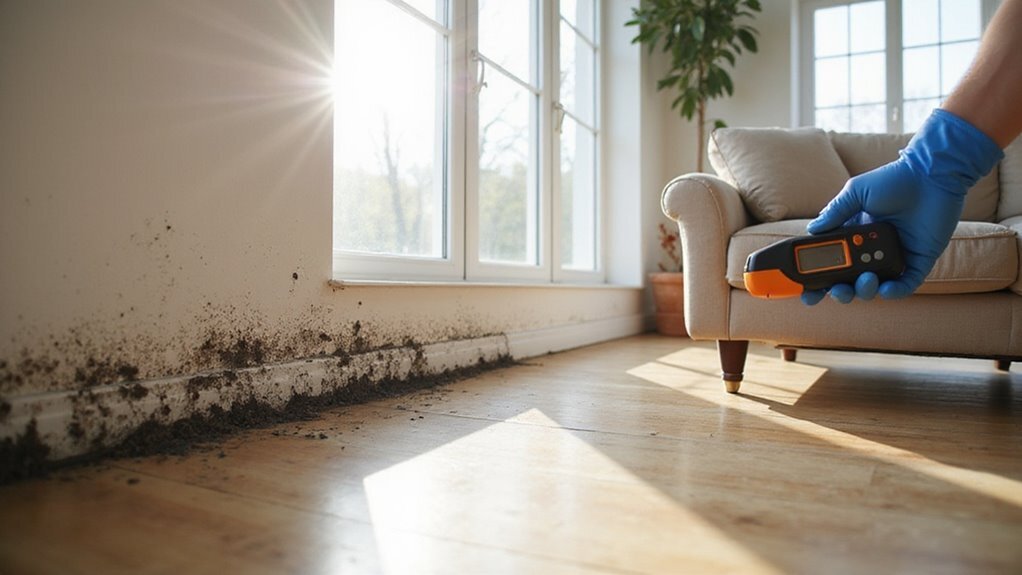Mold is a common problem for many homeowners. If you plan to sell your house, you may wonder if you need to fix mold issues first. Mold can affect the sale, your home’s value, and even the legal process.
Buyers often feel nervous when they see or suspect mold. Mold can make your house harder to sell and lower its price. Ignoring it may also lead to bigger problems during inspection or negotiation. Yes, you should remediate mold before selling to protect your interests and make your home more attractive to buyers.
This blog will guide you through the steps to address mold issues. It will help you avoid costly mistakes and sell with confidence. Read on to learn how to solve mold problems before listing your home.
Key Takeaways
- Remediating mold before selling helps maintain property value and prevents buyers from negotiating steep discounts or walking away.
- Proper mold removal reduces legal risks, as undisclosed mold issues can lead to lawsuits or canceled sales.
- Early remediation demonstrates transparency, building trust with potential buyers and speeding up the sale process.
- Professional remediation and documentation support legal compliance with state disclosure laws and reassure buyers about the home’s safety.
- Addressing mold upfront prevents health hazards, structural damage, and costly last-minute repairs that can delay or derail closing.
Understanding the Risks of Mold in Your Home

Mold in your home can cause serious problems. It can damage the structure of your house and harm your health. Mold grows in wet and hidden areas, making it hard to notice at first. Selling the house to Florida cash home buyers can simplify the process and help you address mold issues more efficiently. If left untreated, mold can weaken wood and drywall.
This can lead to unsafe living conditions over time. Some types of mold release substances that cause allergies or breathing problems. When selling your home, you must tell buyers about any mold issues. If you do not, you could face legal trouble or fines. Proper mold removal, coupled with a fair and competitive pricing strategy, protects your home and keeps everyone safe.
How Mold Affects Property Value
Mold can lower your property’s value. It shows there may be hidden water problems or lack of care. Most buyers see mold as a warning sign.
If mold is present, appraisers might give your home a lower value. Mold removal costs can also make buyers want a discount. Some buyers may even decide not to buy at all.
You should fix any mold issues before selling your home. This can help you get better offers. Ignoring mold can make your home harder to sell. Additionally, addressing water issues that contribute to mold growth can significantly improve your home’s tax basis and overall value. Properly managing property disclosures related to water and mold problems is essential for transparency and to prevent future legal disputes.
Health Concerns Linked to Mold Exposure

Mold exposure can cause health problems for people in your home. Symptoms may include coughing, sneezing, or skin irritation. People with asthma or weak immune systems may have more serious reactions. Additionally, mold growth can compromise the structural integrity of your property if left unaddressed.
If you skip mold testing, you might miss hidden mold. Hidden mold can release spores into the air. These spores are easy to breathe in and can harm your health. Professional testing finds both visible and hidden mold. If mold is found, prompt removal is important. Early action can help prevent bigger health issues later.
Addressing mold issues promptly can also increase your home’s value by maintaining a healthy living environment and preventing structural damage.
Remediation may seem expensive at first. However, medical costs from mold exposure can be much higher. If you handle mold early, you protect your family’s health and your property’s value.
Legal Obligations When Selling a Home With Mold
When you’re selling a home with mold, you must follow strict disclosure requirements that vary by state. Failing to comply not only risks the sale but also exposes you to serious legal consequences. Understanding your state’s mold laws ensures you protect yourself and maintain transparency with buyers. Additionally, many states require that you disclose known mold issues before completing the sale to avoid potential liability.
Disclosure Requirements for Sellers
Sellers must tell buyers about any known mold problems, even if they were fixed. This is required by state and federal laws. Honest disclosure protects you from future legal issues.
Written disclosure informs buyers about past or present mold issues. Sellers should fill out all required forms. If you had mold remediation, provide contractor reports to show the work that was done.
Buyers want to know the home meets building codes and is safe. You should reference inspection records as proof. If there were health risks, list all previous mold incidents clearly.
Clear documentation supports your disclosure. If you keep detailed records, you show responsibility and transparency. This helps buyers feel more confident in their purchase.
State-Specific Mold Laws
State-specific mold laws set rules for sellers about mold in homes. These rules can include testing, disclosure, or cleanup requirements. You must check your state’s laws before listing your home.
Some states require a formal mold test if water damage or mold is present. Other states make you disclose any past or current mold, even if fixed. Certain states set cleanup standards you must meet before selling.
If your state has these rules, you may need to show proof of proper mold cleanup. This proof often comes from certified professionals. Not following these laws could slow down or stop your home sale.
Be sure to learn your state’s mold rules early. This helps you avoid problems during the selling process. If unsure, ask a local real estate expert for advice.
Potential Legal Consequences
Selling a home with mold comes with legal risks. Homeowners must disclose known mold issues and any repairs. Failure to do so can lead to lawsuits or canceled sales.
Many states require written documentation about mold problems. Insurance claims may be denied if you do not follow these rules. Buyers also expect full honesty about mold and remediation.
If you hide mold or do not fix it well, inspections may fail or the sale price could drop. Breaking state laws can result in fines or forced repairs. Negligence claims might end in court-ordered payments.
Here are some possible legal consequences:
| Legal Issue | Practical Impact |
|---|---|
| Nondisclosure | Lawsuits, canceled sales |
| Inadequate remediation | Failed inspections, price drops |
| Insurance claim denial | No coverage for mold repairs |
| State law violations | Fines, mandatory remediation |
| Negligence claims | Court-ordered compensation |
Disclosure Requirements for Mold Issues
You’re legally required to disclose any known mold issues to potential buyers, and failing to do so can lead to serious consequences. Clear, honest disclosure helps you avoid liability and builds trust during the sales process. Keep in mind, buyers may react strongly to mold disclosures, so be prepared to address their concerns directly.
Additionally, understanding the disclosure requirements in your area can help ensure you comply with local laws and regulations. Conducting a thorough title search and resolution before listing your property can help identify any existing issues that need to be addressed, including potential mold problems.
Legal Obligations for Sellers
When selling a property, you must follow the law about mold disclosure. Most states require you to tell buyers about any known mold problems. If you do not share this information, you could face lawsuits or fines.
Sellers are not required to look for unknown mold issues. If you know about mold, you must inform buyers about inspections or repairs. Some states have special forms for disclosure, while others require honest answers to buyer questions.
Check your state’s rules before listing your property. Following the correct process protects you and shows buyers you are honest. Taking these steps helps ensure a smooth sale.
Potential Buyer Reactions
Buyers often react strongly when mold is disclosed. Mold can cause health and structural issues, so buyers may worry. They might look more closely at the home’s condition.
Some buyers may ask for a professional mold inspection. If inspectors find serious mold problems, buyers could lower their offers or walk away. Buyers may also ask for repairs or credits before closing.
If you handle mold issues early, negotiations can go more smoothly. Being open about mold helps set clear expectations. Transparency can build trust, but may also lead to tougher negotiations.
Impact of Mold on Home Inspections

Mold can have a big impact during home inspections. Inspectors must report any signs of mold, even if it looks minor. If mold is visible or there is a musty smell, further checks are likely. Checking Building Exterior can also reveal moisture issues that contribute to mold growth. These extra checks may find hidden problems. Inspectors often estimate how much mold removal will cost.
Such estimates can affect price talks or even stop a sale. Mold in attics, basements, or HVAC units suggests there may be moisture issues. Inspectors may then question the home’s overall condition. If you fix mold problems early, you can avoid delays and control costs. Understanding moisture sources can help prevent future mold growth and improve your home’s value.
Buyer Perceptions and Reactions to Mold
You need to recognize that buyers often view mold as a red flag, which can quickly influence their decision to walk away or negotiate aggressively. Your transparency during disclosure plays a major role in building or eroding trust with potential buyers. If buyers sense any omission or dishonesty, they’re far less likely to move forward confidently with the purchase.
Additionally, addressing visible mold issues before listing can help prevent overpricing and reduce the risk of the home sitting on the market longer than expected. Using a quick-closing cash buyer can be an effective way to sell your home swiftly and avoid the prolonged process of traditional sales, especially if mold remediation is needed.
Impact on Purchase Decisions
Mold problems can make buyers less likely to purchase a home. Buyers often worry about health risks and expensive repairs. Mold signals there may be hidden water damage or poor maintenance.
Buyers think about extra costs for mold testing and fixing the problem. They may also doubt the home’s overall condition. If buyers worry about future resale value, they might offer less or walk away.
Sellers should fix mold issues before listing the home. Doing so helps keep buyers interested and protects the final selling price. If you address mold early, you can avoid last-minute surprises.
Trust in Disclosure Practices
Trust in disclosure practices depends on how much information sellers share. Buyers feel more confident if sellers are open about mold issues. Honest disclosure shows you are not hiding important facts.
If you meet legal disclosure rules, buyers are more likely to trust you. Most buyers know houses are not perfect but expect honesty and proof of repairs. Failure to share mold history can damage your reputation and cause legal problems.
Disclosure affects how buyers see you. Full disclosure increases trust, while partial or no disclosure creates doubt. Proof of mold cleanup reassures buyers and helps keep the sale on track.
Clear and legal communication makes the process smoother. Buyers value honesty and are more likely to go through with the purchase. If you avoid or hide information, buyers may walk away.
The Cost of Mold Remediation
Mold remediation costs can vary, but you should plan for these expenses before selling your home. Prices depend on many factors, including testing and the size of the problem. If you know the costs, you can avoid surprises during the selling process. Additionally, addressing potential legal defects such as undisclosed issues related to mold can help ensure a clear title and smoother transaction. Initial mold testing usually costs between $200 and $600. The price for professional mold removal depends on the area’s size and how much mold is present.
Moderate mold problems often cost between $1,000 and $6,000. Severe mold issues can cost more than $10,000 to fix. If the mold affects materials like drywall or carpet, replacements may be needed. Understanding local market conditions and how they influence pricing can help you set realistic expectations and avoid undervaluing your property. Always consider these factors when planning your home sale.
DIY Mold Removal Versus Professional Remediation
DIY mold removal can save money if the mold is only in a small area. You must wear safety gear and follow EPA steps. If you do not find all the mold, the problem can return.
Professional mold cleaners use special tools and have experience. They test for hidden mold and stop it from spreading. If you are unsure about the damage, professionals are a safer choice.
Choosing between DIY and hiring experts depends on the size and location of the mold. You should think about your skills and the risks. If the job feels too big, call a professional.
Weighing Remediation Costs Against Sale Price
Mold remediation can be expensive, so you need to decide if it is worth the cost before selling. If repairs will not increase your sale price enough, you may lose money. Some buyers avoid homes with visible mold or offer much less. Mold remediation may be costly, and if it doesn’t boost your sale price enough, you could lose money or attract lower offers.
A mold inspection will show how serious the problem is. You should get quotes from several companies to know the real cost. If the issue is small, fixing it might be a good investment.
Check recent sales in your area for homes with and without mold. If homes with mold sold for less or took longer to sell, remediation may help. Your real estate agent can offer advice about your local market.
If you want the highest return, compare all costs and possible sale prices first. If fixing the mold will pay off, it is wise to do it. If not, you may choose to sell as-is and price your home accordingly.
Mold and Mortgage Approval Challenges
Mold can make it harder to get a mortgage. Lenders want homes to be safe and livable. If mold is found, some lenders will not approve the loan until it is fixed.
A home inspection may reveal mold, even if it is a small problem. Lenders may pause or stop the approval until you show the mold is gone. Proof of completed mold cleanup is often required by underwriters.
If buyers need a mortgage, they might lose interest if mold exists. Sellers should fix mold problems and keep records of the cleanup. If you take care of mold early, you can avoid delays or lost sales.
Insurance Considerations for Mold Damage
Homeowner’s insurance often does not fully cover mold damage. Most policies have strict rules or exclusions for mold. If you have mold damage, check your insurance policy before filing a claim.
Some policies only cover mold if it is caused by a covered event, like a burst pipe. Insurers often set limits on how much they will pay for mold cleanup. You may have to pay the rest yourself.
Always read your policy’s section on mold carefully. Look for specific rules, limits, or claim caps. If you are not sure, contact your insurance company for help.
Take clear photos and notes about the mold and what caused it. If you plan to fix the mold, talk to your insurer first. This step helps you avoid problems with your claim.
If you plan to sell your home, make sure you know your coverage. Undisclosed mold issues could cause legal or financial trouble later. Understanding your policy protects you and your property.
Tips for Preventing Mold Recurrence Before Listing
To prevent mold from coming back before you list your property, focus on controlling moisture everywhere. Mold can return if moisture or hidden spores remain. Fixing the source of moisture is the most important step.
Check and repair any leaking pipes, roof problems, or water in the basement. Use dehumidifiers in damp rooms if needed. Make sure bathrooms, kitchens, and laundry areas have good ventilation. Address leaks promptly, use dehumidifiers in damp areas, and ensure proper ventilation in bathrooms, kitchens, and laundry spaces.
Keep gutters clean so water flows away from your home’s foundation. Inspect windows and doors for drafts or condensation, and seal them if necessary. Avoid using carpet in areas that often get wet, like basements.
Ensure your HVAC system is clean and works well. Good air circulation helps keep mold from growing again. Taking these steps will reduce the risk of mold problems before you sell.
Steps to Take if Mold Is Discovered During the Sale Process
If you find mold during the sale process, you need to notify all relevant parties immediately to maintain transparency and protect the transaction. Next, bring in a certified professional to assess the extent of the issue and recommend appropriate remediation. Acting quickly and methodically helps you manage liability and keep the sale on track.
Notify All Relevant Parties
You must tell all important parties if mold is found during the sale process. This keeps everyone informed and meets legal rules. Quick and honest disclosure helps avoid future problems.
The buyer and their agent need to know about the mold right away. If there was an inspection or test, share those results. Your real estate agent should also be updated so they can advise you.
If you have a lawyer, inform them about the mold issue. Legal help may be useful if questions come up. Tell your lender too, because mold can affect loans or insurance.
Clear and fast communication helps everyone make good decisions. If you keep all parties updated, the sale can move forward smoothly.
Obtain Professional Assessment
A professional assessment is necessary to understand your mold problem. Only trained and certified mold inspectors can provide accurate results. If you skip this step, you may miss hidden mold or underestimate the costs.
A certified inspector will test for mold and find its source. This helps you know the type and amount of mold present. The results guide your next actions and help with future negotiations.
If you want to compare services, look at what each one offers. Visual inspections only show what is on the surface, so they may miss hidden mold. Professional mold testing finds spores and types, which is important for planning repairs.
A cost estimate will show you how much remediation could cost. Knowing these figures helps you make informed decisions. Investing in a professional assessment protects your health and finances.
Conclusion
If you address mold before selling, you build trust with buyers and avoid future complications. Mold remediation can make your property more appealing and protect your reputation. Buyers are more likely to move forward when they see you have taken care of issues.
If you want to skip repairs, you can sell your house for cash. We buy houses in any condition, even if they have mold. This option allows you to avoid the stress and cost of remediation.
If you are ready to sell, contact Greg Buys Houses today. We offer fair cash offers and a simple selling process. Let us help you move forward with confidence.

